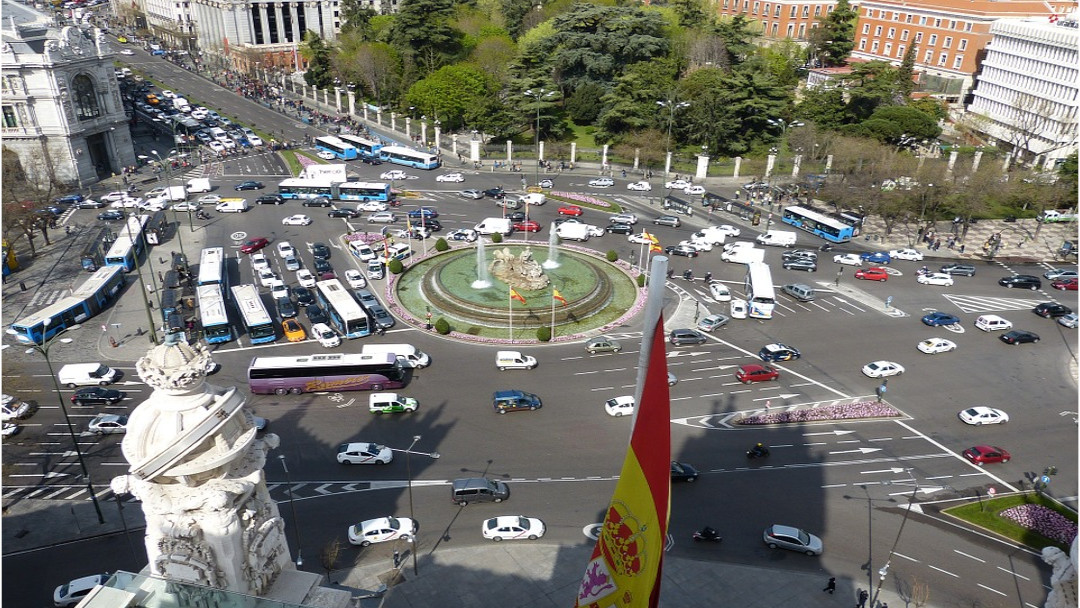The LIFE GySTRA project, coordinated by CARTIF, will hold on June 28 in Madrid a seminar on urban environmental policies and the exhaust gases of vehicles, focused on the potential of remote measurement to achieve a significant reduction of harmful emissions in the cities, main goal of this European project.
The LIFE GySTRA project, financed by the European Union, seeks to create a new sustainable mobility policy based on empirical information on road traffic emissions. Vehicles are measured in real-driving conditions with Remote Sensing Devices. Remote Sensing technology is a tool that allows the administrations to monitor the actual emissions of the vehicles driving in their roads, strengthen the vehicle type-approval regulation and increase road surveillance.
On May 2018, GySTRA started the largest continuous remote on-road vehicle emissions measurement programme ever undertaken in Europe. Since then, hundreds of thousands of vehicles have been analyzed in many different roads of Madrid.
Since April 2018 ‘Guardia Civil’, Spain’s national police force, has collaborated with GySTRA to use Remote Sensing Devices to find in real-time trucks illegally tampered with on the spot. This is the first time that this technology has been used in Europe to fine individual drivers and report environmental crimes.
This event, open to the public and completely free, will present the progress of the LIFE GySTRA project and will connect it with the plans of various European authorities to improve air quality in cities. Leading industry players, stakeholders, remote sensing scientists, politicians and authorities are expected to attend.
The conference will take place in the Sala Europa, representative of
the European Commission in Madrid, at Paseo de la Castellana nº46. The
inscriptions will start at 9:30 am and the conclusion of the event is
expected at 14:30.
Programme:
10:00-10:15 First results of the emissions monitoring program in Madrid. Javier Buhigas, Opus RSE, LIFE GySTRA team.
10:15-10:35 How the Spanish Civil Guard uses remote sensing devices to catch cheating-trucks on the spot. Guardia Civil/Europol.
10:35-10:45 Monitoring the emissions of buses in Sofia. Elitsa Panayotova, Sofia Development Association (Bulgaria), LIFE GySTRA team.
Remote Sensing to complement low-emission zones in cities
10:45-11:00 Real World Driving Emissions – Supporting Effective Air Quality. Management in the United Kingdom. Stuart Sneddon & Rebecca Rose, Ricardo Energy & Environment
11:00 -11:15 Remote Sensing experience in Denmark. Jesper Risager Nielsen & Christian Rud Ingvardsen, NEQ.
11:15 -11:30 Madrid Central: results and future plans. Paz Valiente, Environment and Mobility, Madrid City Council.
11:30-11:45 Low Emission Zones: impacts and recommendations for the EU. María Eugenia López Lambas, CIVINET.
11:45-12:00 Exploring the potential of Remote Sensing in Germany. Christiane Vitzthum von Eckstädt, Umweltbundesamt (UBA).
12:00-12:45 Coffee break and networking.
Europe’s vision of Remote Sensing
12:45-13:00 Impacts of road transport on air pollution in Europe and how to reduce them. Yoann Le Petit, Transport and Environment (T&E).
13:00-13:15 The TRUE initiative to improve air quality in cities. Sandra Wappelhorst, International Council on Clean Transportation (ICCT).
13:15-13:30 Assessment of RSD measurement performance for the screening of vehicle emissions at the JRC. Carsten Grüning, Joint Research Centre of the EC (JRC).
13:30-13:45 Air quality and road transport in the European Union. Vicente Franco, DG Environment (ENV), European Commission.
13:45-14:00 Closing Remarks. Spanish Ministry for the Ecological Transition (MITECO).
14:00 Spanish food and wine.
Inscriptions
